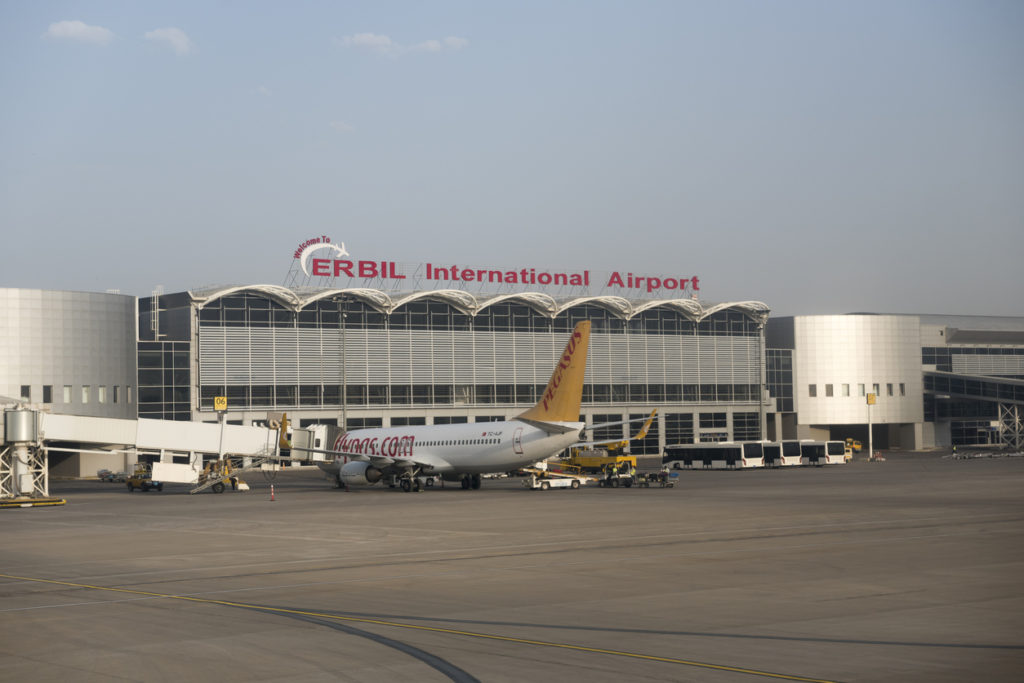Kurdish and Iraqi delegates have agreed for the KRG’s airports to come under the full control of the Iraqi Civil Aviation Authority, in a sign that a new modus vivendi is emerging from the ongoing talks between Baghdad and the regional government.
Strictly speaking, the KRG airports had always been under the ICAA, but in practice the Erbil and Sulaimaniyah airports had not always followed the ICAA’s lead, or had outright ignored it when convenient in the past. This move therefore not only appears to be a move in resolving the international flights ban on the KRG, but doing so in such a way that it integrates the Regional government more closely to the central Baghdad government, increasing its dependence on Baghdad (such as with the offer to pay KRG civil servants) and giving the central government a stronger hand in the event of any future independence ambitions.
Marked improvement in talks
This agreement comes on the back of reports of an “atmosphere of trust” that appears to be coming from the ongoing talks between the regional and national government.
According to reports from Reuters on January 15th, the talks between Kurdish and Iraqi representatives on a wide range of issues, including security, customs revenues, borders, natural resources and infrastructure have been positive and generated a number of recommendations for the Iraqi government to consider.
Part of this willingness to cooperate is no doubt due to the economic impact of the sanctions and reduced funding from the national government, which is putting significant strain on the KRG’s options. However, it is also potentially the case that political developments in Iraq mean that Prime Minister Abadi is also seeking to reap political dividends from the appearance of a successful resolution.
Election to dominate Iraqi politics for coming months
One likely reason for this is that the coming Iraqi election is an uncertain one. Iraq’s former Prime Minister, Nouri al-Maliki, resigned in 2014 (under pressure from the US) due to his role in stoking Iraqi sectarian divides and mismanaging the security services, leading to ISIS’s stunning victories in 2014.
However, al-Maliki, who has continued to serve as Vice-President, has indicated that he intends to run in the current elections, and still has many loyalists within the ruling Dawa Party, which has led Abadi to run on a coalition party ticket instead.
Abadi’s “Nasr” coalition has already run into issues with regards to the Fatah List, the coalition put forward by the Popular Mobilisation Units. Abadi was criticised for his agreement with them and subsequently attempted to renegotiate the terms, only for the Fatah List to back out from the coalition with “Nasr” altogether.
Sensing the weakness of the Prime Minister’s current position, his political opponents have also been attempting to postpone the election, based on the concerns that displaced persons have not necessarily had time to return to their homes. However, the Iraqi Supreme Court has ruled against such a delay and, much like calls for postponing the elections in 2014 in the aftermath of the capture of the Fallujah, the current Iraqi elections are unlikely to be delayed.
Marc Simms is an occasional blogger for Proelium Law LLP. Marc holds a MLitt in Terrorism Studies and a Masters in International Relations, both from St Andrews. His particular interests are in emerging international security issues, unconventional warfare and terrorism.
Need advice?
If you’d like further information, or to discuss working with us, please get in touch






